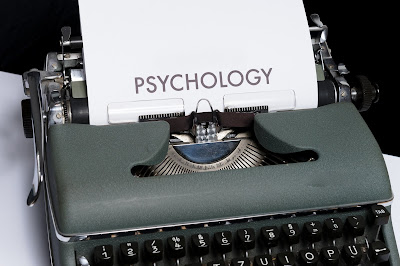Have you ever made a life
prophecy that turned out to be correct? You may not consider yourself a fortune
teller, but you've probably discovered that your predictions may be quite
accurate at times.
For example, you may
anticipate that a project you're working on will be a huge success, and you'll
be confident in your ability to forecast the future when your hard work pays
off and your project is warmly accepted.
Although you may view these
examples as proof that you have a good understanding of yourself and your
skills, you may not consider the impact your expectations have on your conduct.
We are performing a self-fulfilling prophecy when our thoughts and expectations affect our conduct on a subconscious level.
Self-Fulfilling Prophecy and how does it work?
A self-fulfilling prophecy
is a belief or expectation about a future event that emerges as a result of the
individual's belief or anticipation.
For example, if you wake up
and instantly believe that today is going to be a bad day for no apparent
reason, your attitude may cause your prediction to come true.
You could unintentionally
reinforce this view by ignoring the positive, exaggerating the bad, and acting
in ways that are unlikely to contribute to a pleasant day.
Psychologists have
discovered substantial evidence supporting the effect of our beliefs and
expectations on outcomes, particularly when we are certain that our predictions
will come true, even if we aren't aware of it.
The placebo effect is an
example of a self-fulfilling prophecy in psychology that is well-known.
The placebo effect refers
to increases in outcomes recorded in subjects of scientific research or
clinical trials, even when no significant therapy was given. The
"therapy" that the participants get is influenced by their beliefs.
This effect was identified
during clinical studies and may be so powerful that additional metrics were
created to account for its impact on the results of an experiment. The placebo
effect has demonstrated that belief may be quite strong.
The Pygmalion Effect and
Rosenthal:
This research suggested that, in addition to our expectations for ourselves, our expectations of others have an impact on our thoughts, feelings, and actions toward others.
This theory was supported
by a famous experiment conducted in the 1960s by Robert Rosenthal and Lenore
Jacobsen.
The results of this
experiment (and later research) revealed that instructor expectations of pupils
had a greater impact on student performance than variations in skill or
intellect.
The researchers performed
their study at a public elementary school, where they randomly selected a set
of pupils and informed instructors that they had completed the Harvard Test of
Inflected Acquisition and had been classified as "growth-spurts."
They emphasised that these
kids had a lot of promise and that they will probably progress a lot
intellectually in the coming year.
They gathered data on all
of the kids' performance and compared the increases of "regular"
pupils to the gains of "growth spurts."
The researchers discovered
that pupils who were expected to do well by their professors really improved
more than their classmates.
The only explanation for
these results is that the instructors' expectations affected student
performance because the students were not informed of their fake Test of
Inflected Acquisition scores.
The Pygmalion Effect, as it
is known, is an example of a self-fulfilling prophecy involving interpersonal
interactions.
Within partnerships, there
are several instances of self-fulfilling prophecies.
If a woman begins dating
someone with the idea that they are not "marriage material," she is
unlikely to take the relationship seriously and will not devote much time or
effort to it.
Because of her lack of
engagement, her partner may have concerns and believe she is distant and
inaccessible, so why should they remain around and invest in difficult
conversations?
When her partner quits, she
may believe that she was finally proven correct in her assessment that the
partner was unsuitable for a relationship.
Her assumption, on the
other hand, most certainly impacted her conduct to expect little, and that
first seed led the relationship to sour.
On the plus side, a
self-fulfilling prophecy may lead to favourable results in relationships. When
a guy begins dating a man with whom he has a deep connection, he may believe that
this is "the one."
He treats his partner with
love and respect since he intends the relationship to endure, and he may devote
more time and attention to making it fulfilling and meaningful.
This affection and care ensure
that his partner is happy in the relationship as well and causes his spouse to
devote the same amount of time and energy to it.
The outcome he expected is
realised because his forecast that the relationship would be long and pleasant
causes him to behave in a way that supports that prediction.
The self-fulfilling
prophecy is one of those notions that may be used in both academic and personal
situations.
Keep this phenomenon in
mind, especially in your interactions with others and in your own self-talk now
that you understand how our ideas and assumptions may influence our own conduct
and the behaviour of others around us.
Negative ideas can manifest
into reality, but the good news is that happy thoughts can manifest into
reality as well.
Written By- Tanya C


.jpeg)







0 Comments